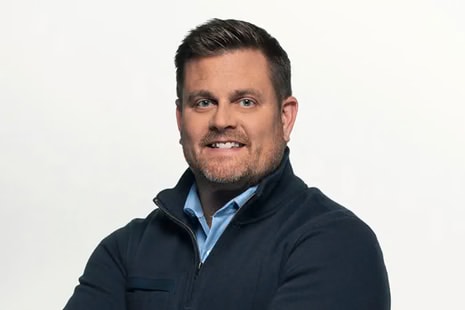Slain Healthcare CEO’s Life Airbrushed by Media
Journalistic skepticism isn't magically exempt when someone dies
Within hours of UnitedHealthcare CEO Brian Thompson’s death by a gunman in Midtown Manhattan, the major media went full North Korea, lavishing praise on the sainted business leader. The Washington Post reported that the “smart and affable” Thompson had a “focus on keeping premiums low,” citing an unnamed company staffer who we’re to believe “spoke on condition of anonymity to protect their job.”
The coverage seems more like a knighthood than journalism, which, the saying goes, distinguishes itself from public relations in printing information someone else doesn’t want printed. Facts about Thompson’s life that he would not have wanted published of course exist (I detail some below). But the major media’s obsession with decorum — we mustn't speak ill of the dead! — has rendered it unable to tell the truth about who this man really was. Instead they fall back on airy praise, saying that Thompson was:
“well liked internally” (The Washington Post)
“a beloved father, husband” (Minneapolis Star Tribune)
“a visionary leader” (The New York Times, quoting BlueCross CEO)
In some ways, Thompson had the same problems as anyone else. In April of 2017, the same month he became CEO of UnitedHeathcare’s Medicare & Retirement business, Thompson pled guilty to drunk driving, for which he served a couple days in jail at the Hennepin County Adult Corrections facility in Minnesota and later probation. And while much reporting has cast him as some kind of dedicated wife guy, he had been separated from his wife for years and lived in their own houses, property records show. In other words, Thompson’s life was in some ways ordinary. If anything I think these details humanize him — the opposite effect that the media’s fawning depiction of him as some titan on Mount Olympus has had.
Thompson’s professional life is where someone it’s hard to relate to emerges. In May, the Hollywood Firefighters’ Pension Fund filed a lawsuit accusing him of insider trading and fraud. According to the lawsuit, Thompson had sold $15 million in personally held company stock during a Justice Department antitrust investigation into UnitedHealthcare, knowledge of which he failed to disclose. When news of the investigation broke, it wiped out nearly $25 billion in shareholder value.
Then there’s Thompson’s reported sale of $1.5 million in stock on the same day that the company suffered a ransomware attack that erased $46 billion in market cap. The only reason I even heard about this was because I interviewed a UnitedHealthcare employee who told me. I’ve since spoken with several employees and it’s now quite clear that the major media’s accounts of Thompson being “well liked internally” might be true of the boardroom, but not the rank-and-file. And that’s the problem with so much of corporate media: it’s not that they’re consciously lying. They’re simply getting their view of the world from the C-suite. If you want to learn about Amazon, you’re going to get a very different picture from Jeff Bezos than you would from a fulfillment center worker. (That’s what I try to do every day on this newsletter, whether it’s interviewing grunts in the military or everyday employees at UnitedHealthcare — I hope you’ll subscribe to support this mission.)
Comedian Bill Burr picked up on the shoddiness of the coverage, remarking on his podcast this weekend:
"I was sitting there reading an article, and a guy was like — 'Oh my god, he's such a great guy; he had a wife and kids, and he's such a great guy’ — and then you find out, he and the other guys he's working for are getting sued for $121 million for dumping a stock, and not letting the other people know."
Yeah, seems like something worth mentioning!



“ the major media’s obsession with decorum — we mustn't speak ill of the dead! — has rendered it unable to tell the truth…”
Perfectly said.
These days, I'm only interested in reading journalists who can see past the veneer created by a well-paid publicist. So THANK YOU for your reporting. It's a service to us all.